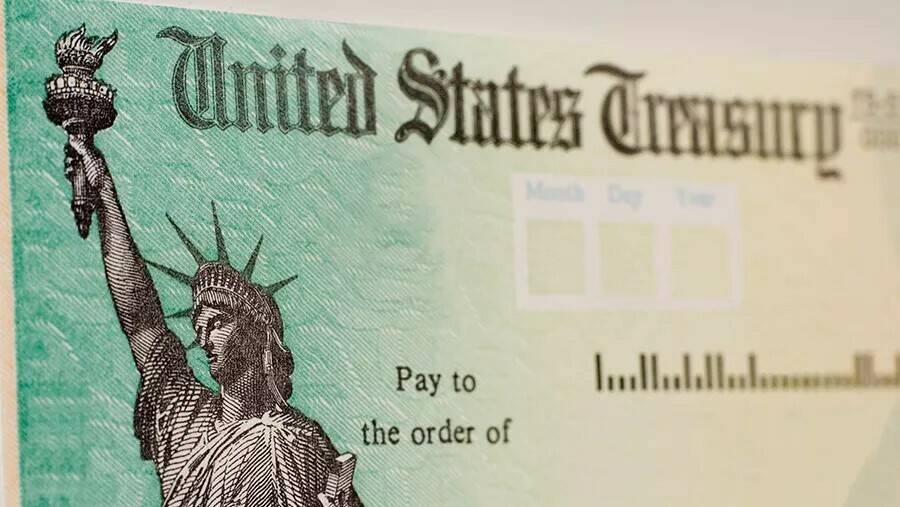Prioritizing direct monthly payments isn’t just good policy—it’s good politics.
By: Sean Kline and Jim Pugh
“It’s not hyperbole, you can change America,” President-elect Joe Biden told Georgia voters ahead of the January 5 runoff Senate elections. And they have. Not only did Reverend Raphael Warnock and Jon Ossoff’s wins hand Democrats control of the Senate, but the election served as a clear referendum on voters’ demand for increased stimulus payments directly to the American people.
Leading up to the Georgia election, Democrats — responding to demands by both progressives and President Trump — pushed to increase individual stimulus checks from $600 to $2,000 but were blocked by Senate Republicans. Ossoff and Warnock campaigned on this cash assistance to aid struggling families during the pandemic, and on the eve of the Georgia election, Biden made the stakes clear to voters:
“If you send Jon and the reverend to Washington, those $2,000 checks will go out the door, restoring hope and decency for so many people who are struggling right now.”
The outcome of the Georgia election confirmed what voters had been saying for weeks: stimulus checks are a top priority. A December poll conducted by Data for Progress found that 63 percent of likely Georgia voters said they would be more likely to vote for candidates who supported more coronavirus relief. Soon after, a national poll from the same organization found an overwhelming majority of likely voters (78 percent) either strongly or somewhat supported direct payments of $2,000.
In response to a survey by the Southern Economic Advancement Project, one Georgia voter named Allison voiced the challenge faced by many in her state: “I am behind three months on my mortgage and two months on my truck payment; another stimulus check would help me get back on my feet.”
After initially refusing to take a stance, both Georgia Republican Senate candidates Kelly Loeffler and David Perdue backed $2,000 relief checks, reluctantly bowing to public pressure and the demand from President Trump.
In the end, Ossoff won by more than 55,000 votes and Warnock won by over 90,000. The clear takeaway is that stimulus checks are good politics.
People are demanding direct cash assistance, which will not only help those who are struggling, but also provide the economic stimulus our nation desperately needs to recover from the pandemic.
This time, Congress can’t make the same mistake they did with the CARES Act in March and just issue a one-time check. While $2,000 will provide more immediate support than the $600 check included in the recently passed stimulus bill, one-time payments can only stall the financial harm of the pandemic for a short period. It won’t protect families from the devastating impacts of the ongoing pandemic, including food insecurity, eviction and bankruptcy. Families need sustained monthly assistance to feed their children, pay rent and stay in their homes.
The data back up this point. In August 2020, the Urban Institute projected that while a single stimulus check of $1,200 to most adults (and up to three dependents) would keep 8.3 million Americans from falling into poverty between August and December 2020, additional stimulus payments would further reduce poverty by a substantial amount, particularly among Black and Hispanic Americans, with even one more check keeping another 6.3 million out of poverty during that period.
Marilyn Bezear, a member of Community Voices Heard from Harlem, New York, struggled to cover her expenses after the last one-time stimulus check.
“We need enough to take us out of debt, so that I can pay my bills without losing sleep at night,” she said. ”People need ongoing support.”
Juan, a business owner from King County, Washington, echoed Marilyn’s view. “Two thousand-dollar monthly direct cash payments would help with some of these utilities, would help with some of the payments that we need to alleviate,” he said. “And not just one, but continuous, until we’re over that threshold and over that hump that says, ‘we can see a better day.’ We really need something that’s continuous in place.”
This sentiment is reflected in broader public opinion. Another national poll from Data for Progress found that 65% of Americans support monthly $2,000 payments for the duration of the pandemic.
This includes majority support among Democrats (78%), independents (60%) and even Republicans (54%).
There has been a steady drumbeat of support for recurring payments from some progressive Democrats throughout the crisis. Sens. Kamala Harris, Ed Markey and Bernie Sanders introduced legislation in May to provide $2,000 monthly stimulus checks for the duration of the pandemic (Markey and Sanders also led recent efforts to increase individual relief checks from $600 to $2,000). Rep. Rashida Tlaib introduced a bill in the House that would have provided $1,000 per person, including children, every month until one year after the end of the Covid-19 crisis.
Momentum in the nation’s capital has been building more broadly for increased stimulus payments, with a 275 – 134 majority of the House of Representatives — including 44 Republicans — voting in late December for the $2,000 stimulus checks. But some legislators continue to oppose greater cash assistance. Senate Majority Leader Mitch McConnell refused to even allow a vote on the $2,000 stimulus checks, and Democratic Senator Joe Manchin of West Virginia recently stated he was “absolutely” opposed to $2,000 checks going out to most Americans.
Those legislators standing in the way of larger stimulus payments to Americans would do well to pay closer attention to the demands of their constituents in this extraordinary time. As we learned from the Georgia election, cash assistance is both good policy and good politics.
_____________________________
Sean Kline is a consultant and former Director of the San Francisco Office of Financial Empowerment. He is co-author of ‘Basic Income in Cities: A Guide to City Experiments and Pilot Projects.’
Jim Pugh is the co-director of the Universal Income Project.
To see original article please visit: https://inthesetimes.com/article/2000-checks-stimulus-georgia-covid-relief-biden




















